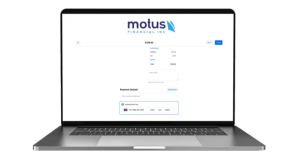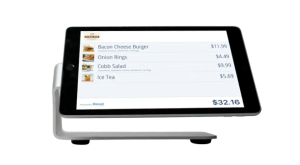Is Tip Pooling and Tip Sharing legal?
The Legalities of Tip Pooling
If you own restaurants in multiple states, you might have experienced different laws concerning tip policies. How tips are shared or pooled is gaining attention, with some states prohibiting the front of house from sharing tips with the back of house (like the kitchen staff). Below you’ll find all you need to know about complying with tipping laws and compensating staff properly.
When Tips Are the Automatic Property of the Employee
A tip is money given by a customer (in addition to the bill) to a restaurant employee for his or her service. The fundamental rule of tip compensation is that tips are the property of the employee, not the employer. That includes:
- Cash tips
- Check tips
- Credit card tips
Some States Allow Restaurants to Use Credit Card Tips to Pay for Transaction Fees
Credit card tips exist in a gray area. Some states allow employers to deduct the credit card transaction fee from the tip; the remainder then becomes the property of the employee.
This is a hotly contested issue. Credit card transaction fees are generally considered a business expense of the owner. Making the server responsible for them raises ethical questions, particularly as the majority of servers rely on tips for income.
Several states prohibit employers from this practice. California, for instance, requires the server to be paid the full amount indicated by the customer.
Service charges are not required to go to the employee, another divisive rule in the restaurant industry. Restaurants can tack service charges onto checks, which most customers pay believing it goes to the server. Since the customer didn’t have a say in the amount that was added, the service charge is considered neither a tip nor the property of the employee.
There are some groups in the industry who are starting to fight automatic service taxes that don’t go to servers. It’s believed that customers should have full disclosure of how the service tax is used, to properly tip the employee what is deserved.
Some states are pushing back against service fees not going to servers and the lack of disclosure to customers. For instance, Washington state laws mandate that restaurants write how the service charges are split up on menus and receipts. In New York, employers must pay the entire sum to the employee. They can keep the included service gratuity only if they tell customers that the service amount is going to the company instead of the employee.
What does a tip credit mean on a paycheck?
Tip credits can be a point of contention for new employees, shocking first-time servers or bartenders. If you’re new to running a restaurant, or if you’re thinking of opening a new restaurant, get to know your state laws on tip credit. In general, states that enforce the federal minimum wage of $7.25 per hour are allowed to keep $5.12 of the hourly wage (the employee cannot receive less than $2.15 an hour). Tip credits are only applied when the tipped employee earns at least minimum wage in tips. It’s not money that can just be kept, though—restaurants must use that money to pay for taxes.
In Washington State, restaurant owners are not granted tip credit, and many have been restructuring their compensation policies ever since the state minimum wage increased to $11 per hour. Similar state laws in California, Minnesota, and Oregon don’t allow employers to take tip credit.
Even more than tip credits, tip pooling structures are under the microscope of the law.
The Difference Between Tip Pooling and Tip Sharing
The point of differentiation between tip pooling and tip sharing is that one is split evenly among regularly tipped employees (tip pooling), and the other doles out percentages to employees who also receive regular hourly wages (tip sharing).
- Tip pooling ensures that all tipped employees are fairly compensated for performing their tasks.
- Tip sharing is when a percentage of the tips goes to certain employees for their contributions during a shift.
Tip pooling allows individuals who make up an interdependent team to be compensated. A coffee shop is the most straightforward example of an establishment that benefits from a pooling policy. One staff member takes orders, the barista makes the coffee, another employee adds special ingredients, and perhaps there is a fourth who serves the coffee.
Since there is just one point of payment, tip pooling is the only way to guarantee that these tipped employees receive their fair share of customer tips.
Which employees can be included in tip pooling?
Not just any employee can be a part of tip pooling. To be eligible by law, the employee must earn at least $30 a month in tips. That tends to exclude kitchen staff and managers.
Employees included in tip pooling are often:
- Bussers
- Counter personnel
- Servers
- Service bartenders
Which employees can be included in tip sharing?
Tip sharing does not split tip wages evenly. Instead, a pre-set percentage is determined for specific roles in a restaurant. These tend to be jobs that neither regularly receive tips nor earn manager-level wages.
- Janitors
- Bakers
- Cooks
- Chefs
- Dishwashers
Which employees can never receive tips?
As a general rule nationwide, those with supervisor duties and a higher annual income may not accept tips. That includes:
- Managers (banquet, floor, bar, general, kitchen)
- Owners
- Presidents/CEOs
- Food service directors
Tip Pooling Laws for Restaurants
Every restaurant owner and manager should be familiar with the following laws governing tip pooling policies in the United States:
- The majority of states allow employers to require tip pooling among a group of employees. Those subject to pooling must give a portion of their tips to the pool.
- Employers must devise reasonable policies.
- Employees must be able to retain the full minimum wage at the very least, and they cannot be required to contribute any sum that counts toward their minimum wage.
- Employees included in a restaurant tip pool must usually receive tips.
- Employees cannot be required to give tips to a pool including employees whose incomes rely on flat hourly wages, such as dishwashers.
- Employers, managers, and owners are exempt from entering the tip pool.
States That Ban Tip Pooling Between the Front and Back of House
Recent rulings in certain states ban restaurants from making the front of house (servers and hosts) contribute to a tip pool that includes the back of house (kitchen staff). Many restaurants rely on tip pooling to even out wage disparities, as employees earning tips tend to make more than employees earning an hourly wage without tips.
- Alaska
- California
- Minnesota
- Montana
- Nevada
- Oregon
- Washington
These states protect tipped employees and force businesses to think of more creative ways to fairly compensate all employees, including those earning hourly rates. Since the tip pooling ban between houses was installed, some restaurants have devised new ways of charging customers.








 Our POS systems are designed to streamline in-store transactions. With features like inventory management, sales reporting, and customer tracking, our POS solutions help you run your business more efficiently. Our terminals are compatible with various payment methods, including chip cards, contactless payments, and mobile wallets.
Our POS systems are designed to streamline in-store transactions. With features like inventory management, sales reporting, and customer tracking, our POS solutions help you run your business more efficiently. Our terminals are compatible with various payment methods, including chip cards, contactless payments, and mobile wallets.
